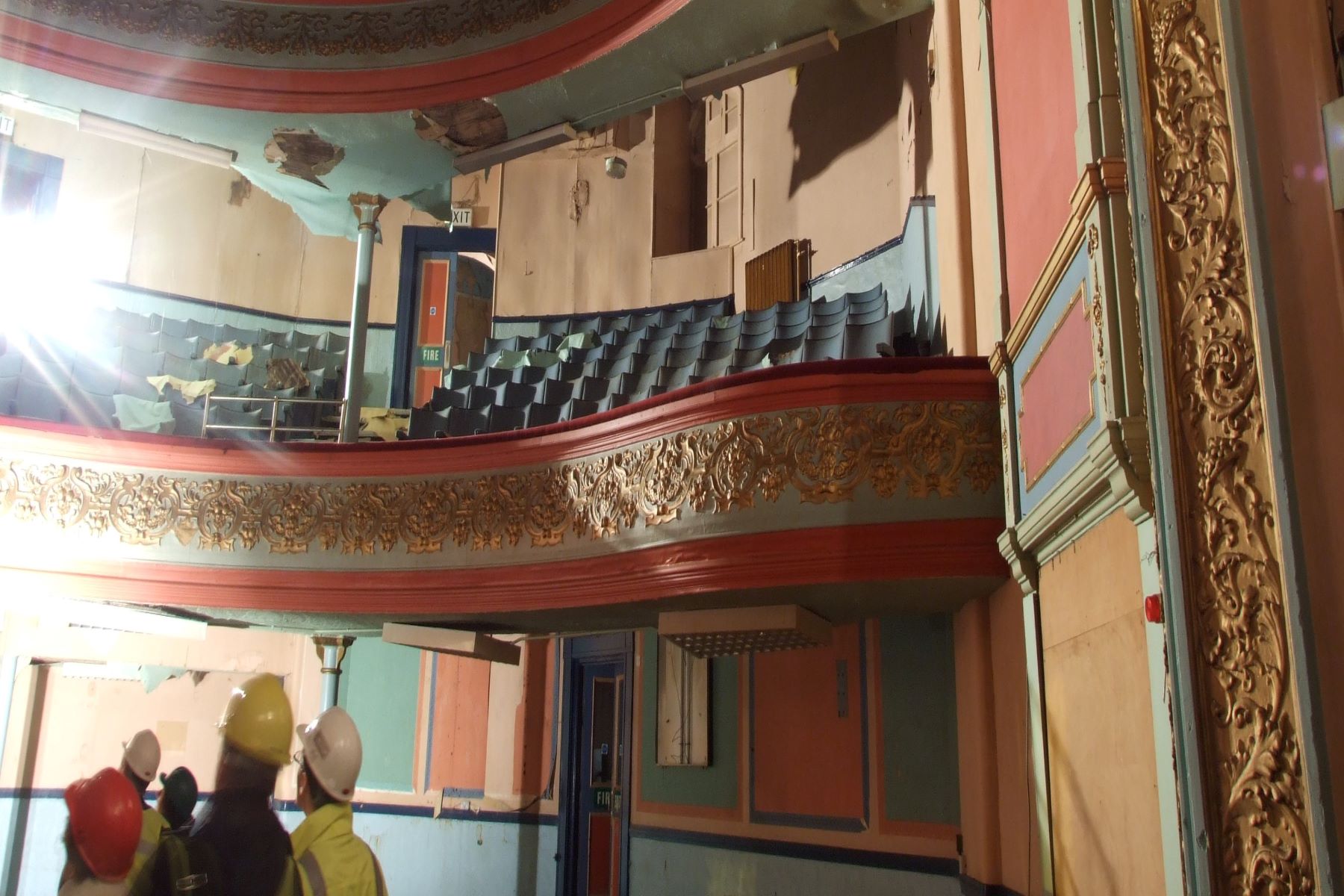
Doncaster Grand
Photo: Theatres Trust
Greening the UK’s theatres
The nation’s theatre buildings are in urgent need of upgrading to make them more sustainable and fit for purpose, argues Jon Morgan.
Following the toughest two years for the theatre sector in living memory, it is tempting to think that the crisis is over now theatres are fully open and welcoming back audiences. But the toll of the pandemic is one that will be felt across the sector for years to come.
Alongside the continued impact on the freelance workforce, the skills exodus, the slow return of audiences and new concerns around cost of living, there are serious longer-term implications for theatre buildings.
This is the focus of the Theatres Trust – the national public advisory body for theatres and the only charity that provides free support to all theatres across the UK, regardless of age, size or operating model.
Reserves for capital projects have been depleted
Born of necessity, there’s been a move over the past two decades to rely less on public funding and more on ticket and ancillary sales. This meant that when the pandemic hit, theatres lost their main source of income overnight.
Even a closed building costs money and reserves were severely depleted just trying to survive. Those reserves in many cases were earmarked for much needed modernisation and maintenance projects.
The UK has a fantastic array of theatres, ranging for small community halls to mid-century civic spaces to grand Victorian playhouses, of which we can be rightly proud.
They contribute to wellbeing and the local economy and, as we saw during the pandemic, play an important civic role in their communities. But sadly, a lot of those buildings are in dire need of upgrades not simply to improve the audience experience but also, as has been brought into sharp focus recently, to improve access and inclusion, environmental sustainability and decrease operating costs.
Sustainability initiatives can help balance books in future
Research* conducted late last year revealed the extent of the work needed to make the UK’s theatre buildings fit for purpose. The analysis of 100 theatres estimates the cost at £1.1bn – an eye-watering figure at first glance but an investment that would bring huge benefits. For example, it would save 6,500 tonnes of CO2 a year (the equivalent of 9,700 return flights to New York).
Adjusted for the subsequent hike in energy prices, this represents at least £6m annual revenue savings for those 100 theatres (an average of £60,000 per annum for a 600-seat theatre).
Translated across to the UK’s 1,100 or so theatres, it’s easy to see how a timely investment in sustainability improvements would bring a huge boost to theatres struggling to make the books balance.
The funding landscape has worsened
The Theatre Green Book project**, provides user-friendly guidance and tools for theatres to be more sustainable, but it leaves unanswered where the essential funding to make these improvements is going to come from. There isn’t a quick fix, one-size fits all answer.
Funding for capital projects has decreased steadily since the last peak of theatre building fuelled by National Lottery funding around the turn of millennium. And we’ve seen a significant fall in major capital grants from arts councils in recent years.
But since the pandemic, the funding landscape has worsened as trusts and foundations committed their funding to help organisations survive the lockdown. In turn, construction costs have sky-rocketed and capital projects are in jeopardy as fundraising struggles to keep pace with price increases.
Small schemes with big potential impact
Theatres Trust is currently running two grant schemes – the Theatre Improvement Scheme in association with the Wolfson Foundation and the Small Grants Programme with The Linbury Trust.
The former focuses on environmental sustainability, the latter on projects that improve theatre accessibility, inclusion, sustainability or viability. Both fund small projects with big potential impact, but they don’t come anywhere near plugging the huge funding gap.
The government’s levelling up agenda offers some opportunities that theatres, working with local authority culture teams, are well placed to grab. These include culture-specific initiatives like the Levelling Up for Culture funding in England, and also, the more financially significant Levelling Up Fund and UK Shared Prosperity Fund.
As Cultural Investment is one of the three themes in the £4.8bn Levelling Up Fund, theatres need to position themselves as key partners in any bid. A number of theatres have already benefitted from the first round of funding with theatres including Home in Manchester, Muni Arts Centre in Pontypridd and the Alexandra Theatre in Bognor Regis accessing capital investment for new or upgraded facilities.
The £2.6bn available to local authority-led projects through the UK Shared Prosperity Fund makes allocations to all areas based on a funding formula.
Partnerships with local authorities are essential
So it’s more important than ever for theatres to build strong relationships with local authorities to demonstrate the benefits of having revitalised and fit-for-purpose theatres at the heart of the community.
At Theatres Trust, we work with DCMS and the Local Government Association (LGA) to advocate for theatres, in particular contributing to the LGA’s Commission on Culture and Local Government, to promote the role of theatres in the pandemic recovery and in levelling up communities.
Theatres are part of the fabric of communities across the UK. It is vital we make the case for continued investment so they can be fit for purpose and continue to be vibrant creative and social hubs, fostering creativity, innovation, regeneration, wellbeing and civic pride.
Jon Morgan is Director at Theatres Trust.
![]() @TheatresTrust
@TheatresTrust
*The research was conducted on behalf of Theatres Trust in November 2021 by consultancies AECOM, Avison Young, Bristow Consulting and Buro Happold.
**The Theatre Green Book project is co-ordinated by Paddy Dillon of Renew Culture with lead partners Theatres Trust, ABTT and Buro Happold.
Join the Discussion
You must be logged in to post a comment.